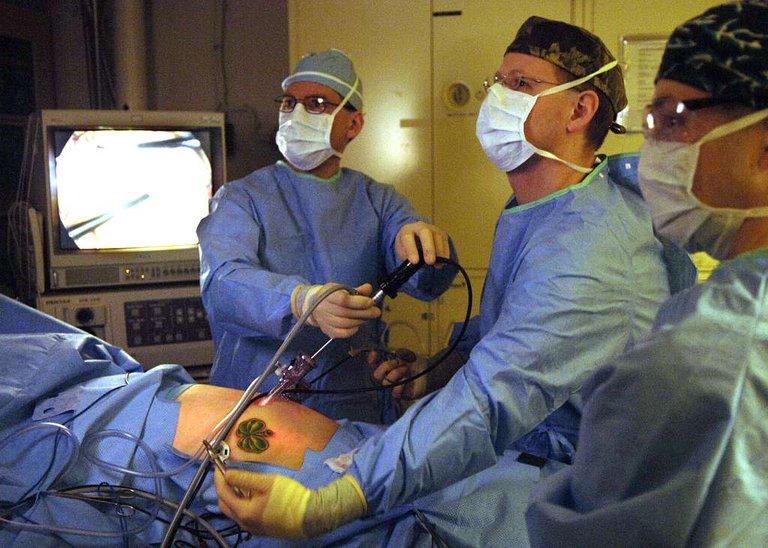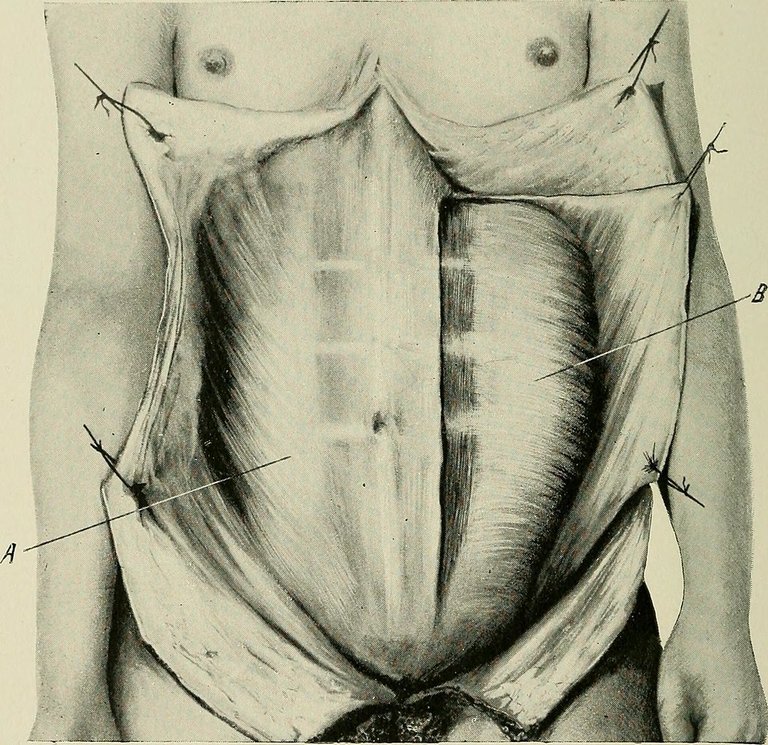The Myths and Proven Facts on Appendicitis.
When I was growing up, appendicitis was described to us as a big stone in the corner of our belly, we were told to avoid the consumption of any dirty substance or seeds, if we did not want to have a case of appendicitis. What childhood memory did you have about appendicitis, I would like to hear some more stories.
But, moving away from childhood memories about appendicitis, let's talk about some of the science-proven facts about it. Appendicitis happens when the appendix gets clogged, infected, and gets inflamed. I read one article where it was stated that nobody knows what the exact purpose of appendicitis is, but we all know that it is a very serious condition.

Image source
Appendicitis causes sudden, intense, and acute pain in the lower part of the abdomen. The appendix itself is a small, tubular pouch, which is around the size of a finger, protruding from the lower right end of the large intestine. Feces that are moving through the large intestine could block or infect the appendix, leading to inflammation. When the inflammation happens, it causes the appendix to swell, and when swelling happens, it could burst as well.
When the appendix bursts, it isn't a small case any longer, in actual fact, it is a medical emergency, as it spreads bacteria from inside the bowels all through the abdominal cavity. This infection can then spread to the bloodstream, leading to life-threatening complications.
Due to how risky the entire occurrence is, the best treatment is to have your appendix taken out, the appendix is not an essential organ, so you have absolutely nothing to worry about when the doctor says that is the only solution.
How does one begin to suspect the occurrence of appendicitis, it shows through these symptoms;
- Nausea and vomiting.
- Absence of appetite.
- Gas.
- Abdominal bloating.
- Diarrhea or constipation.
- Sudden pain that starts around the navel and moves to the lower right abdomen.
- Pain that gets worse while walking, moving, or making other moves.

Image source
Although most cases of appendicitis are usually acute, we also have chronic cases. An acute case means the condition begins suddenly and worsens really fast. Chronic appendicitis, on the other hand, is a rather rare condition that we do not really know much about like acute appendicitis.
The case of chronic appendicitis happens when something irritates the appendix, in an on-and-off manner over a long time, but never gets worse.
Chronic appendicitis may happen without even being recognized as the symptoms would usually not escalate like in the case of acute appendicitis. But in any way, appendicitis is serious on its own, so you should see an expert as soon as you feel the symptoms.
Complications also happen, coming in the form of a burst appendix or a pocket of pus that forms in the abdomen.
Peritonitis: This is when there is a burst appendix, it is also called a ruptured appendix, where infection gets spread all through the abdomen. A life-threatening condition that requires urgent surgery to remove the appendix as well as clean the abdominal cavity.
When there is a burst of the appendix, a pocket of infection known as the abscess is developed. To remedy this complication, a surgeon would most likely drain the abscess by placing a tube through the abdominal wall into the abscess. This tube is kept on the spot for about two weeks, while antibiotics are administered to clear off the infection.
The exact cause of appendicitis is not known, most experts believe it develops at the point when part of the appendix gets obstructed, or blocked. But, several things can block the human appendix potentially, we have cases like; tumors, intestinal worms, traumatic injury, buildup of hardened stool, and an enlarged lymphoid follicles.
Anyone can get affected by appendicitis, but more people are prone to the condition than others. The risk factors of appendicitis include; sex, age, and family history.
Upon visitation to the hospital to complain about your symptoms, the doctor may suspect the presence of appendicitis and discuss the symptoms and medical history with you. Depending on how the physical examination turns out, the doctor may order more tests that would help to check for the signs of appendicitis or rule out other potential causes of the symptoms felt.
Blood tests, urine tests, pregnancy tests, abdominal imaging tests, pelvic examinations, chest imaging tests, and abdominal imaging tests are usually what suspected patients would need to undergo to officially conclude the presence of appendicitis.
Early detection and fast treatment are ways to help escape possible complications, so when symptoms are being felt, it is important to check medically and undergo the necessary treatments.
References.
https://www.mayoclinic.org/diseases-conditions/appendicitis/symptoms-causes/syc-20369543
https://www.medicalnewstoday.com/articles/158806
https://www.healthline.com/health/appendicitis#treatment
https://www.everydayhealth.com/appendicitis/guide/
https://my.clevelandclinic.org/health/diseases/8095-appendicitis
Thanks for your contribution to the STEMsocial community. Feel free to join us on discord to get to know the rest of us!
Please consider delegating to the @stemsocial account (85% of the curation rewards are returned).
Thanks for including @stemsocial as a beneficiary, which gives you stronger support.